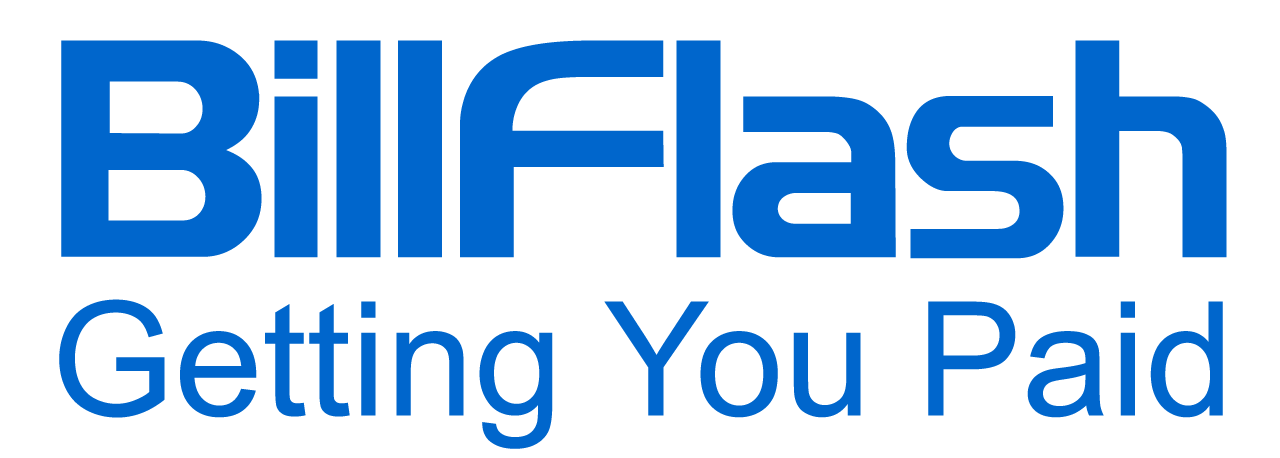Gain a comprehensive understanding of the fundamentals of a health insurance claim with our insightful article.
A health insurance claim is a crucial part of the healthcare system. It serves as a formal request from a policyholder to an insurance company for coverage and reimbursement of medical expenses incurred. Understanding the process and types of health insurance claims is important for individuals seeking medical care and insurance providers alike. In this article, we will explore the key aspects of health insurance claims, from their definition to the challenges they often present, and provide helpful tips for managing them effectively.
Defining Health Insurance Claim

A health insurance claim is a formal request submitted by a policyholder to an insurance company seeking coverage and reimbursement for healthcare expenses. These expenses can include medical consultations, diagnostic tests, surgeries, medications, and other services outlined in the insurance policy. The claim serves as a means of communication between the insured individual, healthcare providers, and the insurance company.
When a policyholder incurs medical expenses covered by their insurance policy, they can submit a claim to the insurance company to seek reimbursement. The claim typically includes detailed information about the services received, such as the date of service, the healthcare provider's name, the nature of the service, and the associated costs. This documentation helps the insurance company assess the validity of the claim and determine the amount of reimbursement the policyholder is eligible for.
The Role of Health Insurance Claims in Healthcare
Health insurance claims play a crucial role in the healthcare system. They ensure that individuals have access to affordable medical care and help safeguard against exorbitant out-of-pocket expenses. Without the ability to file claims, individuals would be responsible for paying the full cost of medical services, which could be financially burdensome and potentially prevent them from seeking necessary care.
Furthermore, the claims process promotes transparency and accountability in the healthcare industry. By submitting claims, healthcare providers are required to document the services they provide and justify the associated costs. This documentation allows insurance companies to evaluate the medical services rendered and ensure that they align with industry standards and guidelines.
Insurance companies rely on the claims process to accurately assess the coverage and reimbursement owed to policyholders. By carefully reviewing each claim, they can determine the appropriate amount to pay the healthcare provider and the amount that the policyholder is responsible for. This evaluation process helps prevent fraud and abuse within the healthcare system and ensures that resources are allocated efficiently.
Key Terms to Know in Health Insurance Claims
Before diving into the process of filing a health insurance claim, it's important to familiarize yourself with key terms related to claims:
- Policyholder: The individual who holds an insurance policy and is entitled to the benefits outlined within it. As a policyholder, you have the right to submit claims for eligible healthcare expenses and seek reimbursement from the insurance company.
- Premium: The amount paid by the policyholder to the insurance company to maintain coverage. Premiums are typically paid on a regular basis, such as monthly or annually, and help fund the overall cost of healthcare coverage.
- Deductible: The predetermined amount that the policyholder must pay out of pocket before the insurance company starts covering expenses. For example, if your policy has a $1,000 deductible, you will need to pay $1,000 towards eligible healthcare expenses before the insurance company begins reimbursing you.
- Copayment: A fixed amount that the policyholder must pay for specific medical services or medications. Copayments are typically set at a predetermined rate, such as $20 for a doctor's visit or $10 for a prescription medication, and are paid at the time of service.
- Coinsurance: The percentage of the medical expenses that the policyholder must pay after meeting the deductible. For example, if your policy has a 20% coinsurance requirement, you will be responsible for paying 20% of the eligible expenses, while the insurance company covers the remaining 80%.
Understanding these key terms is essential for navigating the health insurance claims process. They help you comprehend the financial aspects of your policy and determine your financial responsibility for healthcare expenses. By familiarizing yourself with these terms, you can make informed decisions about your healthcare and effectively manage your insurance coverage.
The Process of Filing a Health Insurance Claim

Filing a health insurance claim requires careful preparation and adherence to specific steps. By understanding and following this process, policyholders can increase the chances of a smooth and successful claim reimbursement.
Preparing to File a Claim
Prior to filing a health insurance claim, it is essential to gather and organize all relevant medical documentation. This includes medical bills, invoices, prescriptions, diagnostic test results, and any supporting documentation related to the services received. Taking the time to compile these documents ensures accuracy and helps avoid delays or rejections.
For instance, medical bills should include itemized details of the services rendered, such as the date of service, the name of the healthcare provider, the description of the service, and the cost. Invoices from pharmacies should include the prescription details, such as the medication name, dosage, and quantity. Diagnostic test results should be clear and legible, with the patient's name and date of the test clearly stated.
Additionally, policyholders should review their insurance policy to understand the specific requirements for filing a claim. Some policies may require pre-authorization for certain procedures or treatments, while others may have specific time limits for filing a claim after receiving the services.
Steps in Filing a Health Insurance Claim
The specific steps in filing a health insurance claim can vary depending on the insurance provider and policy. However, the general process typically involves the following:
- Complete the claim form provided by the insurance company.
- Attach all supporting documents, ensuring they are legible and organized.
- Submit the claim form and supporting documents via mail, email, or online portal, depending on the insurance company's preferred method.
- Keep copies of all submitted documents for future reference.
- Wait for the insurance company's response and follow up if necessary.
- Review the explanation of benefits (EOB) received from the insurance company, which details the coverage and reimbursement provided.
Once the insurance company processes the claim, they will send an explanation of benefits (EOB) to the policyholder. The EOB provides a detailed breakdown of the coverage and reimbursement provided for the services rendered. It is important to review the EOB carefully to ensure it aligns with the policy terms and the services received. If there are any discrepancies or questions, it may be necessary to contact the insurance company for clarification.
By following these steps and being proactive throughout the process, policyholders can navigate the health insurance claim filing process with confidence. Remember, each insurance company may have its own specific requirements and procedures, so it is important to review the policy and contact the insurance company directly for any additional guidance.
Types of Health Insurance Claims
Health insurance claims can vary based on different factors, including network providers, preauthorization requirements, and the nature of the medical services. Understanding the types of health insurance claims can help policyholders navigate the healthcare system more effectively.
In-Network vs. Out-of-Network Claims
When seeking medical care, policyholders can choose between in-network and out-of-network providers. In-network providers have a contractual agreement with the insurance company, which often results in lower out-of-pocket costs for the policyholder. Out-of-network providers, on the other hand, may require the policyholder to pay more or may not be covered at all. Filing a claim for in-network services typically follows a streamlined process, while out-of-network claims may require additional steps and documentation.
Preauthorization Claims
Some medical services or procedures require preauthorization from the insurance company before receiving treatment. Preauthorization is a process where the insurance company reviews the medical necessity and cost-effectiveness of a specific treatment. Failing to obtain preauthorization for services that require it may result in denial of the claim or reduced coverage. It is advisable to consult the insurance company and healthcare provider to ensure preauthorization requirements are met.
Common Challenges in Health Insurance Claims

Despite efforts to streamline the claims process, challenges can still arise that hinder successful claim reimbursement. Policyholders should be aware of these challenges and equipped with the necessary knowledge to resolve them efficiently.
Denied Claims and How to Appeal
Claim denials can occur due to various reasons, such as incomplete documentation, coding errors, or coverage limitations. If a claim is denied, policyholders have the right to appeal the decision. The appeals process typically involves providing additional documentation, clarifying questionable expenses, or addressing any errors. Understanding the insurance company's appeal process and deadlines is crucial to ensuring a fair review of the claim.
Understanding Explanation of Benefits (EOB)
An explanation of benefits (EOB) is a document provided by the insurance company after a claim is processed. It outlines the services rendered, their associated costs, the insurance company's coverage, and the policyholder's responsibility. It is essential to carefully review the EOB to identify any discrepancies or unexpected charges. In case of discrepancies, policyholders should immediately reach out to their insurance company for clarification.
Tips for Managing Health Insurance Claims
Managing health insurance claims effectively can save time, reduce stress, and optimize reimbursement. Adopting these tips can help policyholders navigate the often complex claims process and maintain accurate records for future reference.
Keeping Track of Your Medical Records
Maintaining a comprehensive record of medical documents, including bills, receipts, and test results, is crucial for filing successful claims. Organize these records by date and keep them in a secure location, such as a dedicated file folder or a digital repository. Staying organized facilitates the claims process, enables easier retrieval when needed, and supports accurate reimbursement.
Communicating with Your Insurance Provider
Open and clear communication with your insurance provider is vital to addressing any questions, concerns, or issues in a timely manner. If you encounter difficulties during the claims process or require clarification on policy coverage, reach out to your insurance company's customer service department. The representatives can provide guidance, explain procedures, and ensure that you are informed about the status of your claim.
Understanding the basics of a health insurance claim is essential for individuals navigating the complex world of healthcare. By familiarizing yourself with the process, types of claims, and challenges that may arise, you can better advocate for yourself and ensure optimal reimbursement for medical expenses. Stay organized, communicate effectively, and be proactive in understanding your insurance policy to make the most of your health insurance claims.
Going Forward with BillFlash
With BillFlash, practices can go further by optimizing their revenue cycle, efficiently collecting past-due A/R, and providing patients with a convenient and secure payment experience. With a user-friendly interface and industry experts available for all your billing, payments and collections needs, BillFlash is the perfect solution for small practices.

